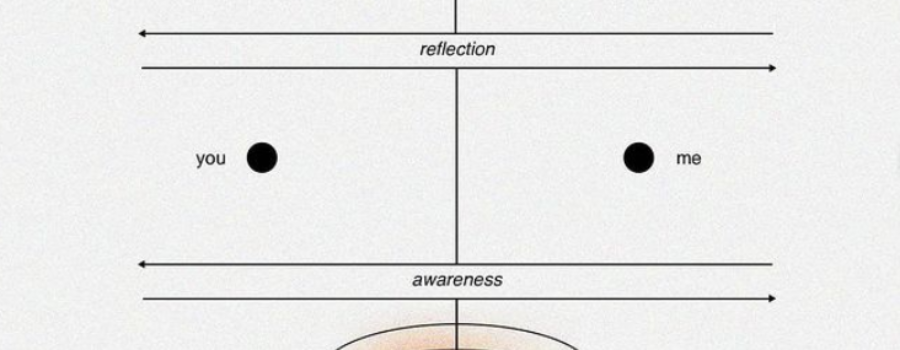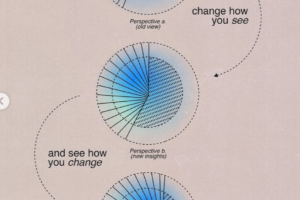I am currently focused on some very exciting neuroscience, but feel highly inspired to post today. Despite now being entirely (and permanently) immune to limerence, the topic is never far from the forefront of my mind.
Out of all of the emergent human phenomena that I have assessed from a neurobiological perspective, limerence will always be the most fascinating and nuanced. It will also likely always be the one that I am most passionate about teaching people how to fight – to crush – to never, ever have to deal with again. Life is too short not to give yourself your best chance. Recovering from limerence is beyond euphoric and enlightening – not only do you permanently leave behind depths of emotional torture that, frankly, no one should ever endure, but you become crystal clear about a). your real needs, stances and aspirations and b). how you, personally, must direct your unique, emotionally complex, obsessive-leaning nature for your unlimited expansion and success. In late spring/early summer, I will be releasing lots of novel content that I could not be more enthused about, concerning all of these topics – stay tuned!
Oh, Limerent Objects…
Today we are going to reflect a little on the topic of LOs. Despite delving into which archetypes of people typically trigger limerence in those genetically prone in my book, I always stress the importance of not excessively focusing on your LO or letting resentful momentum build during recovery. Cliché as it may sound, a). extinguishing your current limerent episode (LE) and b). permanently conquering the condition so that you are never, ever forced to see yourself in such a situation again is only contingent on you changing. It is all-too-tempting to fall into the trap of wondering why on earth your LO has treated you as they have (whether that be cruelly, strangely or just downright perplexingly), but it is ultimately fruitless. It does nothing built build ‘heartbreak momentum’, and we must commit to stepping sideways out of that very headspace if we want to crush the delusion for once and for all.
However, you have my full permission to analyse your LO logically to aid your recovery and come to some lucid conclusions. My recovery programme involves ascertaining a). why your LO hits in a potent way and induces limerence in you (i.e. which precise psychological needs they are complementing/any poorly integrated traumas that they might be ‘softening’ for you) and b). which belief systems you have unknowingly fallen prisoner to that keep you seeing this connection as ‘special’ and worth the pain. Therefore, you can allow yourself to come to conclusions concerning what type of scenario you and your LO have found yourself in, and how they have behaved while you’ve felt the most hooked. Employing critical thinking in order to figure out what traits your LO has/what type of dynamic you have with them can rapidly reveal your unmet needs (why they ‘glimmered’ to you initially) and your beliefs (regarding what you deserve, who is worth putting on a pedestal, and much more).
That brings me to today’s topic.
I know that every single one of you will have had very different experiences with LOs. Limerence involves a plethora of many different psychological factors coalescing together to render you vulnerable to a particular type of person, who will ironically seem neutral and human to everyone else around you (and to you, too, following your conscious growth and recovery).
However, one thing that every single limerent has in common is the following: they believe that their LO is more powerful than them.
Limerence Is About Power and Perceived Value
I could write an entire book on the sociopsychological and evolutionary factors that render us driven to pair-bond with people we deem to be ‘high-value’. Albeit fascinating, this is not a topic that I shall be indulging in full depth today. However, we are all neurobiologically wired to prefer individuals who possess a degree of intrinsic power over us.
Now, I am not necessarily referring to wealth and authority; how this looks for you will depend on a multitude of factors like your gender, sexual orientation, interests, dreams, fears and childhood programming. You see, when I say that limerence involves the limerent considering their LO to be more powerful and of higher value than them, I am speaking about your LO’s unique ability to ‘meet’ your unmet psychological needs (which will not be unmet once you work on yourself accordingly) to make you feel euphoric. If you have been reading my content for a while, you will be conscious of the profound, inescapable duality that exists behind any neurochemical ‘buzz’, whether it be from caffeine, refined sugar or a human being. As long as hints of reciprocation from your LO provide you with bliss, euphoria, motivation or, as is often the case in developed limerence, just comfort and mental stability, you will feel the opposite in their absence. And, thus, they have immense power over you.
Now, do not despair. The fact that you are, subconsciously, adhering to a position of neediness within the connection is by no means a reflection of who you truly are or who you will be once you leave this detrimental pattern behind. Nor does this mean that this person is, in any way, actually objectively superior to you. Remember, who they are and what ‘good points’ they have will depend entirely on you and the way in which limerence exerts its madness on you.
It may be that you do become limerent for people who are very academically gifted and strategic yet have a narcissistic edge, typically aligning toxically with LOs who are your bosses or supervisors. If this is true for you, it will be easy for you to conceptualise that you have your LO on a sky-high pedestal and are granting them too much power – this will most likely be something that you have intuited long ago. However, the fact that disempowerment sits at the crux of every LE sometimes remains camouflaged even to the most emotionally perceptive individual. If your weakness is not people who exert dominance/a commanding aura over you, you may be missing this. You may, for example, find yourself prone to idealising LOs who are far less abundant, confident and sensible than you. It might be their chaotic, colourful personality and irreverence that makes you feel free and renders you absolutely weak.
During my most brutal (and last ever) LE, I constantly internally categorised the connection that I had with my LO as “magical” and “deep”, incapable of perceiving that none of that mattered, nor was it helping me break the pattern. Regardless of the fact that they had shown strong interest in me initially and we had many interesting conversations, I viscerally and spiritually craved the connection while they didn’t. I left our meet-ups with my heart bursting with a mixture of euphoria, for having seen them, and agony, at knowing that they did not feel the same way for me. I was limerent while they were not, meaning that a strong power differential was present between us.
Irrespective of the dynamic between you two (and whether they are oblivious to this fact or exploitative of it), your LO has power over you by virtue of the fact that they are your LO. That applies whether they are steely cold and narcissistic, seemingly emotionally-void and addicted to your attention, or a relatively normal individual who sits somewhere between these extremes.
View Yourself As Higher-Value Than Your LO
I trust that you will currently be extrapolating from these examples and pondering exactly why/how your LO seems powerful to you. Do so while reminding yourself that you are immensely high value – now that you are embarking on your recovery journey, your feelings for this capricious person have a real expiry date. This LE has been a mere ‘blip’ involving your brain viewing your LO as a). the provider of an unmet need and, hence, b). indispensable – assimilate the lessons, but do so as analytically and optimistically as possible.
Remember that nothing is set in stone. The purpose of this journey isn’t to come to conclusions regarding your LO and feel dejected, looking for more proof in your reality of the negative things that your LO has made you feel about yourself. It is wake up to the fact that the brain is a complex system and its goals/output can be adjusted. It is never, ever too late to abruptly and successfully change the concept of yourself that you adhere to in your head, or to unplug all of the admiration that you energetically send to your LO and commit to giving them nothing more. Your reality will always reflect who you believe yourself to be right back at you, and the feelings/respect/lack of respect that you inspire in others will change radically and quickly if you persist in a new, improved, abundant self-image.
“Surely Conceptualising Limerence As A Power Imbalance Is Overly Simplistic?”
It may be that the limerent emotions are clouding your mind and making it hard for you to see the causal role that an illusory power dynamic plays in sustaining them. In other words, what should you do if you’re inundated with thoughts about how unique, beautiful and special the connection with your LO is, and skeptical that a generic psychological blanket term like ‘power mismatch’ could ever apply to your feelings… to your story?
Irrespective of who your LO is and how you are currently justifying staying in this energetic space, try the following exercise. Imagine yourself treating one of your friends like you treat your LO. Ponder what it would take to get you to drop everything, whether physically or just mentally, for one of your friends, if s/he had provided you with nothing but mixed signals regarding the friendship for a month. Imagine yourself assuming this pining, ‘limerent’ role with a friend – shaking with joy at having received a lacklustre text message reply two weeks late, desperately wanting to make a mental beeline for them at events and having to restrain yourself, hoping you’ll get allocated to the same project group as them despite some recent behaviour from them that left a lot to be desired.
Naturally, this will seem amusing to you, even farcical, because you see your friend as an equal. You cannot imagine being enshrouded in a cloud of emergent romantic emotions for them that warp your boundaries so bizarrely and undesirably. However, your LO does generate these feelings in you, and your behavioural repertoires are completely different around them. Don’t beat yourself up about having slipped into this dynamic, but never, ever let the intensity of these emotions convince you that acting as your LO’s subordinate is a role that you can continue to play. Whether it be overtly (buying them coffees that they don’t deserve) or subtly (giving them a lot of yourself/responding to their messages with maximum warmth while they are cold and capricious), occupying this position is simply not an option for someone like you. That I say from the bottom of my heart.
Don’t Seek Revenge, Seize Back Your Power and Composure
Don’t let this experience embitter you, or let you become resigned to viewing dating as a mere balancing act/game. Most of the time, you will be able to glide through life, trust your intuition and treat people as you deem natural. However, do let this be a lesson that a). the brain is adept at conjuring up convincing illusions about people when it thinks that doing so will get your primitive needs met, and that, consequentially, b). a perceived power imbalance is at the heart of limerence and is invariably one of the factors that sustain it. Another overarching lesson to take from limerence is that, occasionally, we must act in ways that feel completely unnatural and in discord with our desires in order to remain true to ourselves and protect our vital energy. Initially, it will feel artificial to retract your energy from your LO when your entire being is pushing you to secure more of their time/attention/reciprocation, but your recovery (and permanent limerence immunity) depends on you taking this plunge and viewing limerence as a big, sugary, dopamine-fuelled delusion.
Whether your feelings about your LO centre on them being objectively influential and powerful (common if they are narcissistic and that is your trigger archetype/weakness), or you just feel that “they understand you better than anyone else” and “live life evocatively and freely”, they have glimmered to you and made you limerence. You believe that they possess the key to a world of feelings that you want permanent access to.
The true, transformative trick is to become someone who gets these needs met (and a degree of these feelings unleashed) in different ways, so that this individual and any similar future characters will simply have zero power over you. This is completely achievable, because remember – romance is a natural human experience and need, but limerence is love gone pathological and by no means something that you are ‘stuck with’.
What is pathological can, and must be, nipped in the bud and cured. If you worry that limerence is just “your way of experiencing love” or that “non-limerent dating will be boring”, I can guarantee that you are going to be blown away by the emotional spectrum that will open up for you once you kick the habit. Limerence is pure, raw intensity, but is ultimately a limiting, one-dimensional vice in the sense that a powerful stimulant drug is. You can be entirely limerence-cured and immune and still feel sky-high emotions, child-like exuberance and stomach-tingling excitement about life every single day. I, for one, wouldn’t accept life any other way!
If you’ve read to the end of this post, I wish you a wonderful week. I adore dissecting this bewildering, but inevitably immeasurably enlightening, neural phenomenon, and sincerely find sharing my insights with you all very rewarding.



Recent Comments